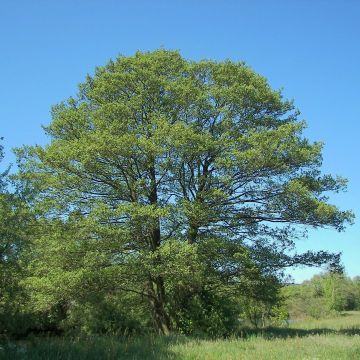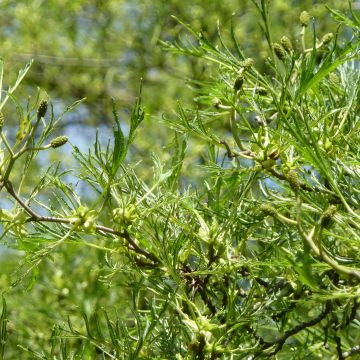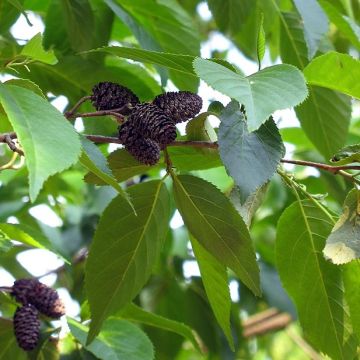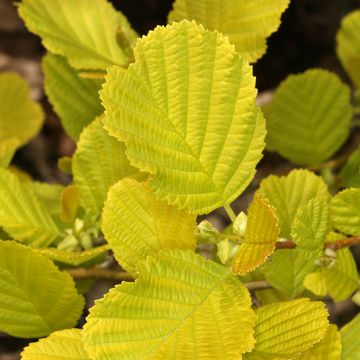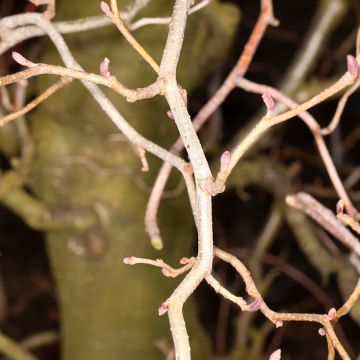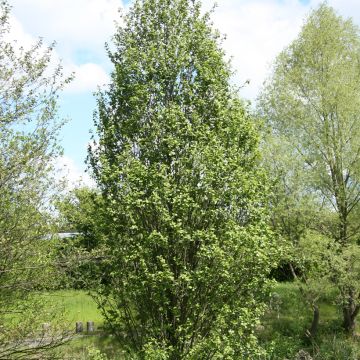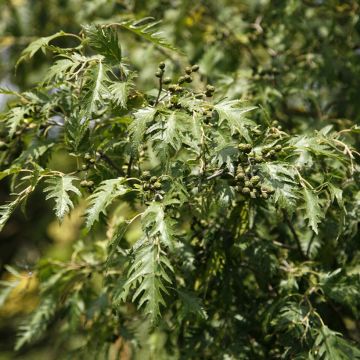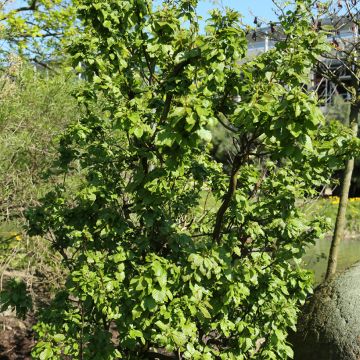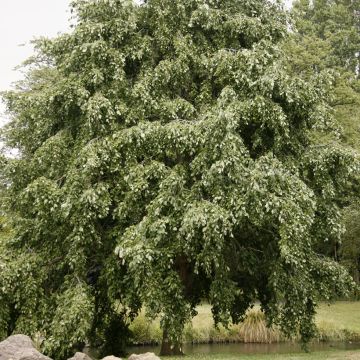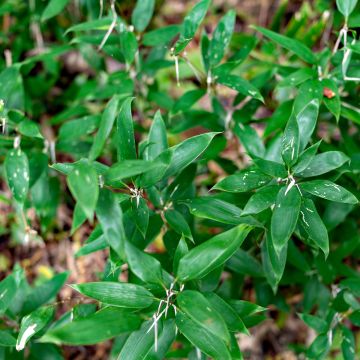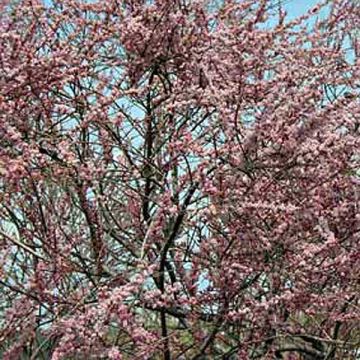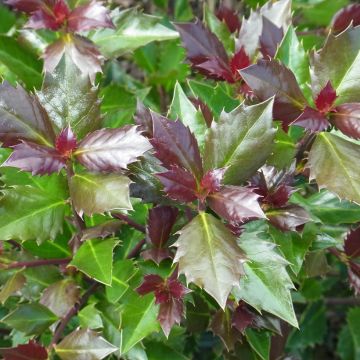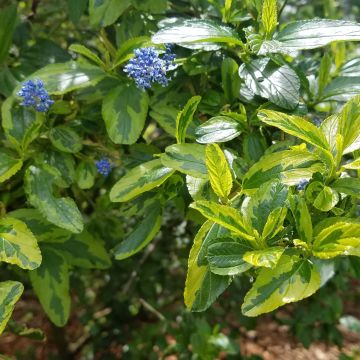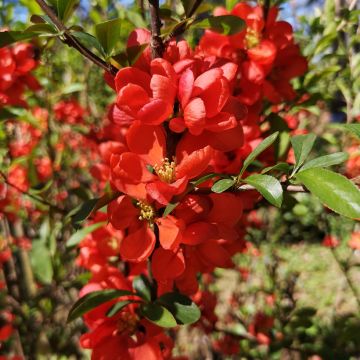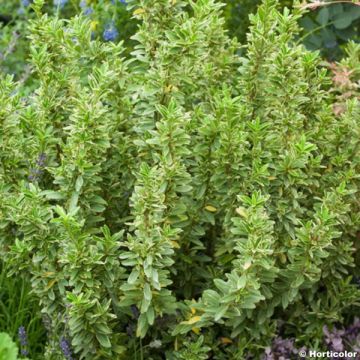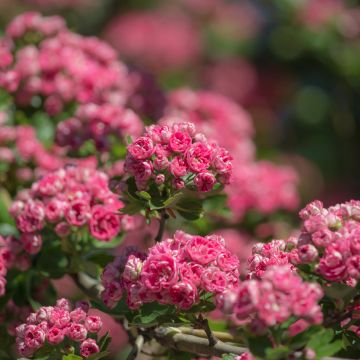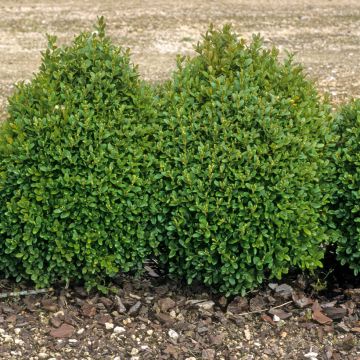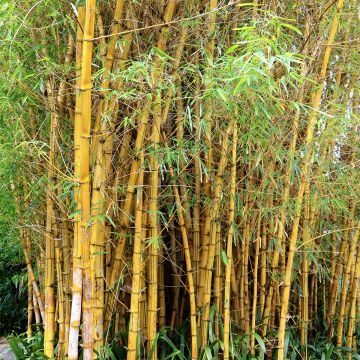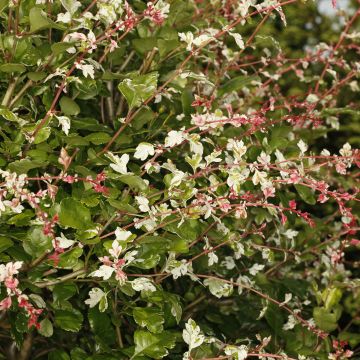

Alnus cordata - Italian Alder


Alnus cordata - Italian Alder


Alnus cordata - Italian Alder


Alnus cordata - Italian Alder
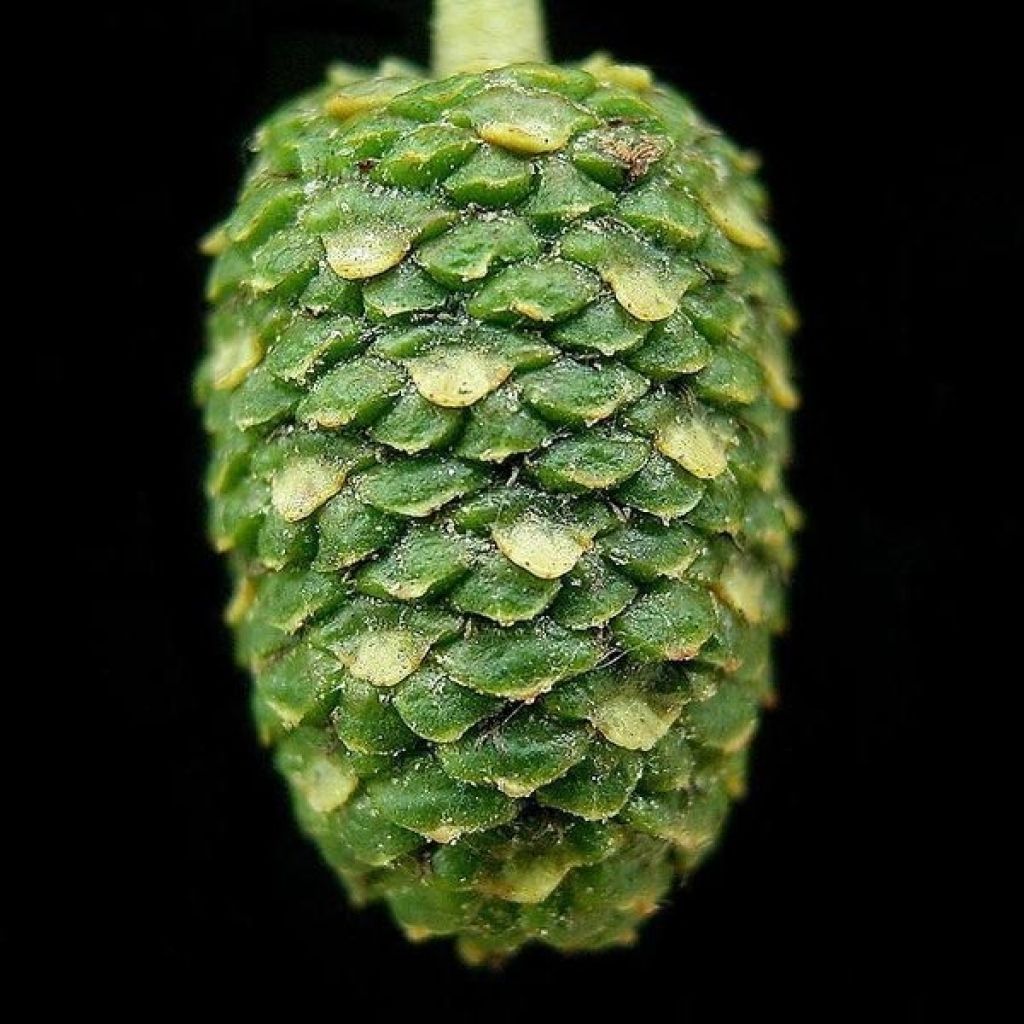

Alnus cordata - Italian Alder
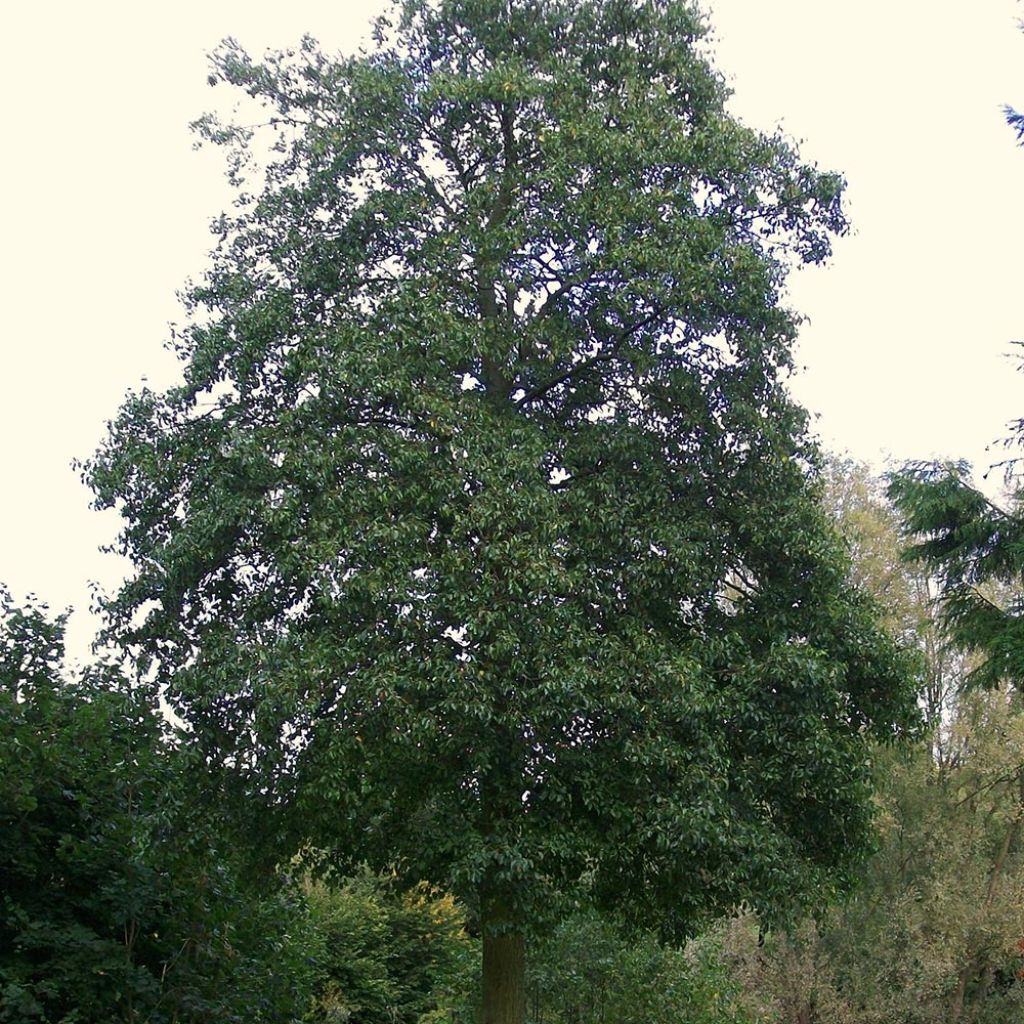

Alnus cordata - Italian Alder
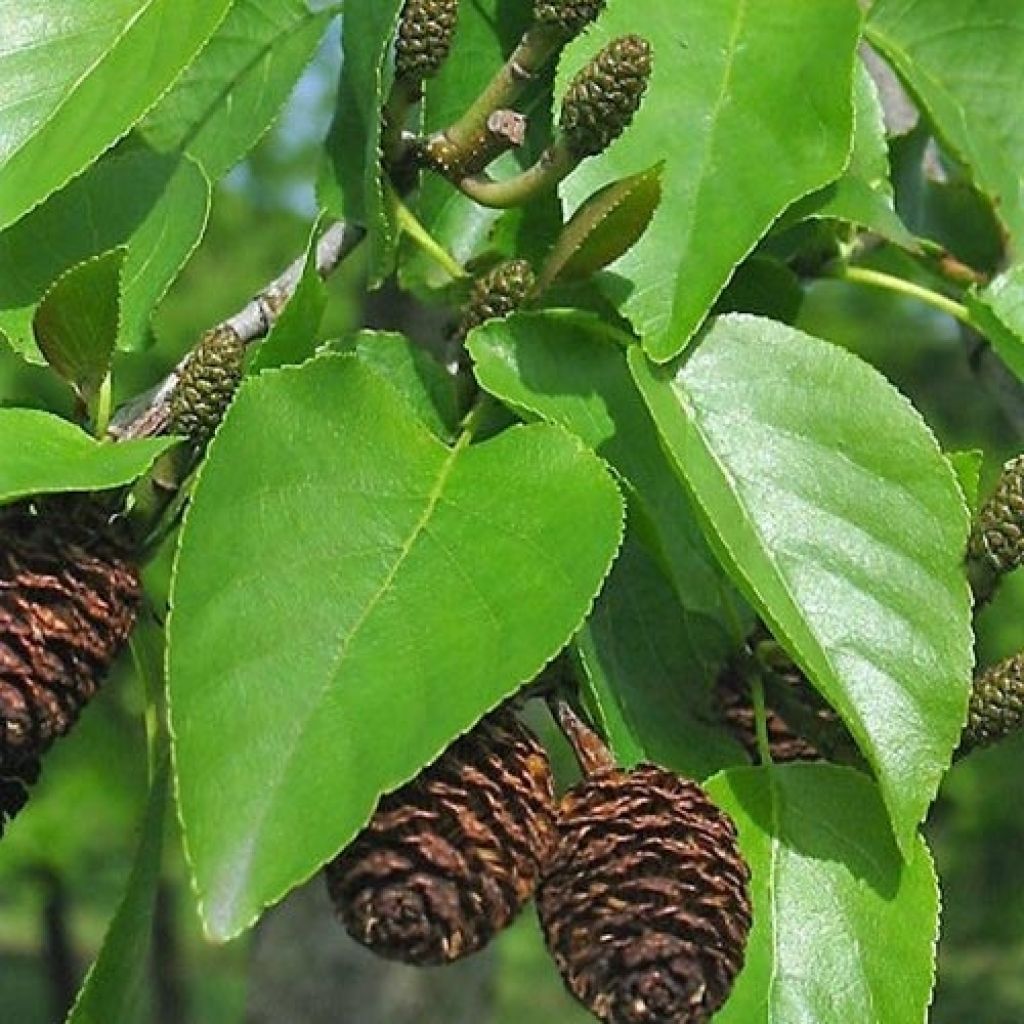

Alnus cordata - Italian Alder
Alnus cordata - Italian Alder
Alnus cordata
Italian Alder
Why not try an alternative variety in stock?
View all →This plant carries a 24 months recovery warranty
More information
We guarantee the quality of our plants for a full growing cycle, and will replace at our expense any plant that fails to recover under normal climatic and planting conditions.
Oversize package: home delivery by special carrier from €6.90 per order..
Express home delivery from €8.90.
Delivery to Corse prohibited: UE law prohibits the import of this plant from mainland France to Corse as part of the fight against Xylella fastidiosa. Please accept our sincere apologies.
More information


Does this plant fit my garden?
Set up your Plantfit profile →
Description
Corsican alder is a medium-sized, deciduous tree with very aesthetic heart-shaped dark green, leathery and shiny leaves that remain on the tree for a long time before falling in winter. Native to Corsica and southern Italy, it is found in moist woods at high altitudes and along watercourses, in sunny locations with moist, clayey, and acidic soil, where it thrives alongside chestnut trees. The luxuriance of its dense canopy and its good hardiness mean, it is often planted as a shade tree in squares and as an avenue tree in central and western European cities. This is a fast-growing tree that tolerates poor soils and resists drought better than other alders!
Alnus cordata is a deciduous tree of the Betulaceae family. It is native to the moist woods of Corsica and southern Italy, where it is found up to 1000 metres (3280 feet 10 inches) above sea level, often along watercourses. It has an elegantly slender, slim and conical silhouette. Its bark is initially brown-grey and smooth, then becomes blackish and fissured as it ages. Its 4 - 10 cm (1.6 - 3.9 in) bright green leaves are heart-shaped at the base and pointed at the tip. They persist on the branches for a long time and change little in colour before falling in winter. They are leathery and shiny and the main ornamental feature of this tree. Their undersides are lighter and have brown hairs at the vein intersections. The flowers appear later in this species. From March, pendant, quite bright yellow-brown male catkins, appear. The female flowers resemble dark brown cones, 2-3 cm (0.8-1.2 in) long. Corsican alder grows rapidly to 15 metres (49 feet 2 inches) in 20 years. At maturity, it reaches a maximum height of 25 metres (82 feet) and a width of 6 metres (19 feet 8 inches). The fruits are woody ovoid cones, called strobili, which remain on the tree for one year. They release narrow, winged nuts that are dispersed by the wind and provide an important food source for birds.
Corsican alder needs less water than common or white alder. Its tolerance to limestone is excellent and its hardiness is quite good, down to -20°C (-4 °F). Thanks to its very dense foliage cover, it is suitable for planting to create a shaded area in a large garden. It is particularly lovely planted in groups on slopes or embankments to retain soil, as a windbreak or in a countryside hedge. Combine it with other large tree and shrub species as its dense canopy does not allow for underplanting. Create functional and woldlife-friendly hedges by planting it with fruit-bearing species such as elderberry and rowan.
Alnus cordata is widely used for stabilising limestone soils and revegetating poor and unstable soils, especially in challenging sites such as urban wastelands, slag heaps, and abandoned mines where its extensive, branched root system effectively retains the soil. Like other alder species, it forms nodules containing nitrogen-fixing bacteria, thus restoring this richness to the soil. Its wood is lightweight and rot-resistant. It is easy to grow, but there has been a deadly disease present since the 1980s that causes the decline of alders, transmitted through root penetration, especially when planted near slow-flowing, warm, and poorly shaded watercourses. All affected trees should be pruned to ground level. As a preventive measure, monoculture plantations along watercourses should be avoided. Alnus is loved by wildlife, so protect the collar and trunk from potential nibbling!
Report an error about the product description
Alnus cordata - Italian Alder in pictures


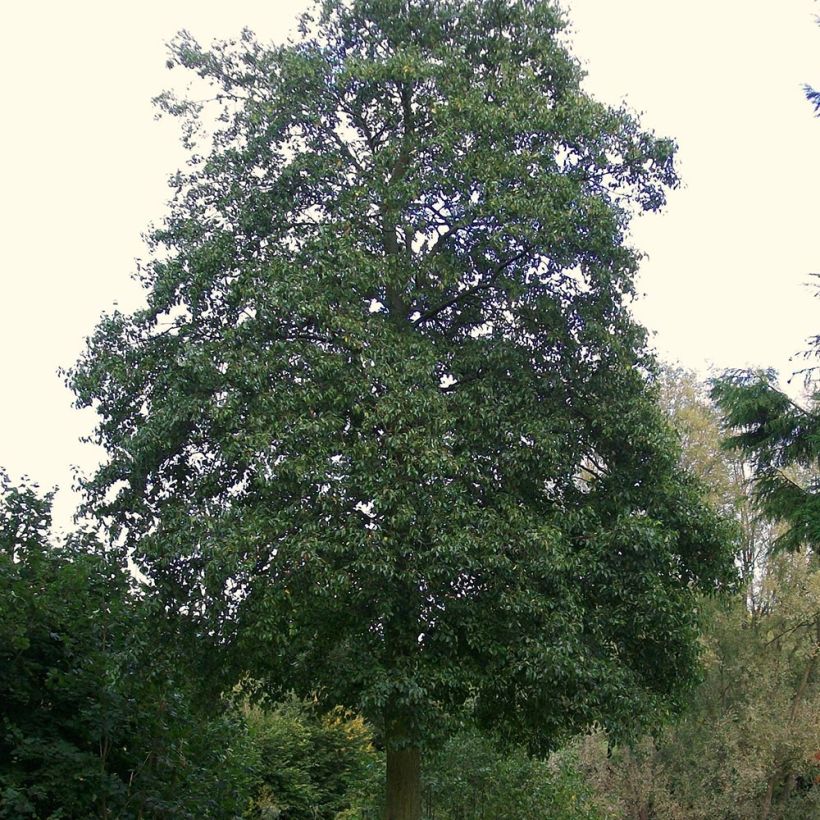



Plant habit
Flowering
Foliage
Safety measures
Botanical data
Alnus
cordata
Betulaceae
Italian Alder
Mediterranean
atteinterespiratoire
Cette plante peut entraîner des symptômes allergiques.
Evitez de la planter si vous ou vos proches souffrez de rhinite saisonnière ("rhume des foins").
Davantage d'informations sur https://plantes-risque.info
Other Alnus - Alder
Planting and care
Corsican Alder is easy to grow in moist soil and requires little maintenance. It is best planted in dry to moist soil, preferably limestone, in full sun. It tolerates wind well. Prune only to remove dead or unwanted branches.
Planting period
Intended location
Care
-
, onOrder confirmed
Reply from on Promesse de fleurs
Hedge shrubs
Haven't found what you were looking for?
Hardiness is the lowest winter temperature a plant can endure without suffering serious damage or even dying. However, hardiness is affected by location (a sheltered area, such as a patio), protection (winter cover) and soil type (hardiness is improved by well-drained soil).

Photo Sharing Terms & Conditions
In order to encourage gardeners to interact and share their experiences, Promesse de fleurs offers various media enabling content to be uploaded onto its Site - in particular via the ‘Photo sharing’ module.
The User agrees to refrain from:
- Posting any content that is illegal, prejudicial, insulting, racist, inciteful to hatred, revisionist, contrary to public decency, that infringes on privacy or on the privacy rights of third parties, in particular the publicity rights of persons and goods, intellectual property rights, or the right to privacy.
- Submitting content on behalf of a third party;
- Impersonate the identity of a third party and/or publish any personal information about a third party;
In general, the User undertakes to refrain from any unethical behaviour.
All Content (in particular text, comments, files, images, photos, videos, creative works, etc.), which may be subject to property or intellectual property rights, image or other private rights, shall remain the property of the User, subject to the limited rights granted by the terms of the licence granted by Promesse de fleurs as stated below. Users are at liberty to publish or not to publish such Content on the Site, notably via the ‘Photo Sharing’ facility, and accept that this Content shall be made public and freely accessible, notably on the Internet.
Users further acknowledge, undertake to have ,and guarantee that they hold all necessary rights and permissions to publish such material on the Site, in particular with regard to the legislation in force pertaining to any privacy, property, intellectual property, image, or contractual rights, or rights of any other nature. By publishing such Content on the Site, Users acknowledge accepting full liability as publishers of the Content within the meaning of the law, and grant Promesse de fleurs, free of charge, an inclusive, worldwide licence for the said Content for the entire duration of its publication, including all reproduction, representation, up/downloading, displaying, performing, transmission, and storage rights.
Users also grant permission for their name to be linked to the Content and accept that this link may not always be made available.
By engaging in posting material, Users consent to their Content becoming automatically accessible on the Internet, in particular on other sites and/or blogs and/or web pages of the Promesse de fleurs site, including in particular social pages and the Promesse de fleurs catalogue.
Users may secure the removal of entrusted content free of charge by issuing a simple request via our contact form.
The flowering period indicated on our website applies to countries and regions located in USDA zone 8 (France, the United Kingdom, Ireland, the Netherlands, etc.)
It will vary according to where you live:
- In zones 9 to 10 (Italy, Spain, Greece, etc.), flowering will occur about 2 to 4 weeks earlier.
- In zones 6 to 7 (Germany, Poland, Slovenia, and lower mountainous regions), flowering will be delayed by 2 to 3 weeks.
- In zone 5 (Central Europe, Scandinavia), blooming will be delayed by 3 to 5 weeks.
In temperate climates, pruning of spring-flowering shrubs (forsythia, spireas, etc.) should be done just after flowering.
Pruning of summer-flowering shrubs (Indian Lilac, Perovskia, etc.) can be done in winter or spring.
In cold regions as well as with frost-sensitive plants, avoid pruning too early when severe frosts may still occur.
The planting period indicated on our website applies to countries and regions located in USDA zone 8 (France, United Kingdom, Ireland, Netherlands).
It will vary according to where you live:
- In Mediterranean zones (Marseille, Madrid, Milan, etc.), autumn and winter are the best planting periods.
- In continental zones (Strasbourg, Munich, Vienna, etc.), delay planting by 2 to 3 weeks in spring and bring it forward by 2 to 4 weeks in autumn.
- In mountainous regions (the Alps, Pyrenees, Carpathians, etc.), it is best to plant in late spring (May-June) or late summer (August-September).
The harvesting period indicated on our website applies to countries and regions in USDA zone 8 (France, England, Ireland, the Netherlands).
In colder areas (Scandinavia, Poland, Austria...) fruit and vegetable harvests are likely to be delayed by 3-4 weeks.
In warmer areas (Italy, Spain, Greece, etc.), harvesting will probably take place earlier, depending on weather conditions.
The sowing periods indicated on our website apply to countries and regions within USDA Zone 8 (France, UK, Ireland, Netherlands).
In colder areas (Scandinavia, Poland, Austria...), delay any outdoor sowing by 3-4 weeks, or sow under glass.
In warmer climes (Italy, Spain, Greece, etc.), bring outdoor sowing forward by a few weeks.

































